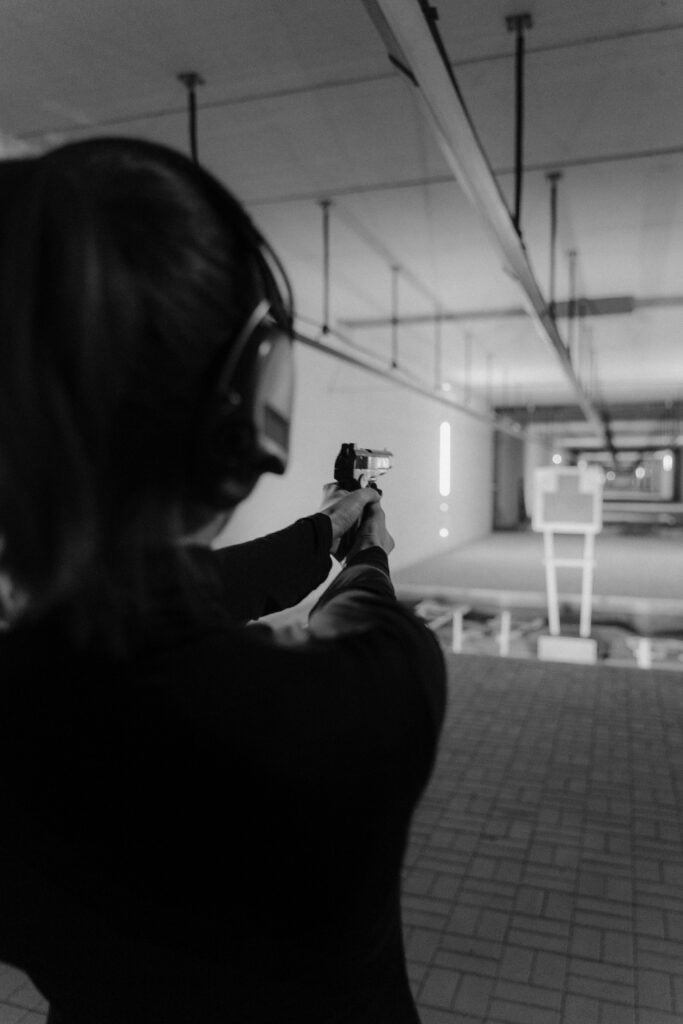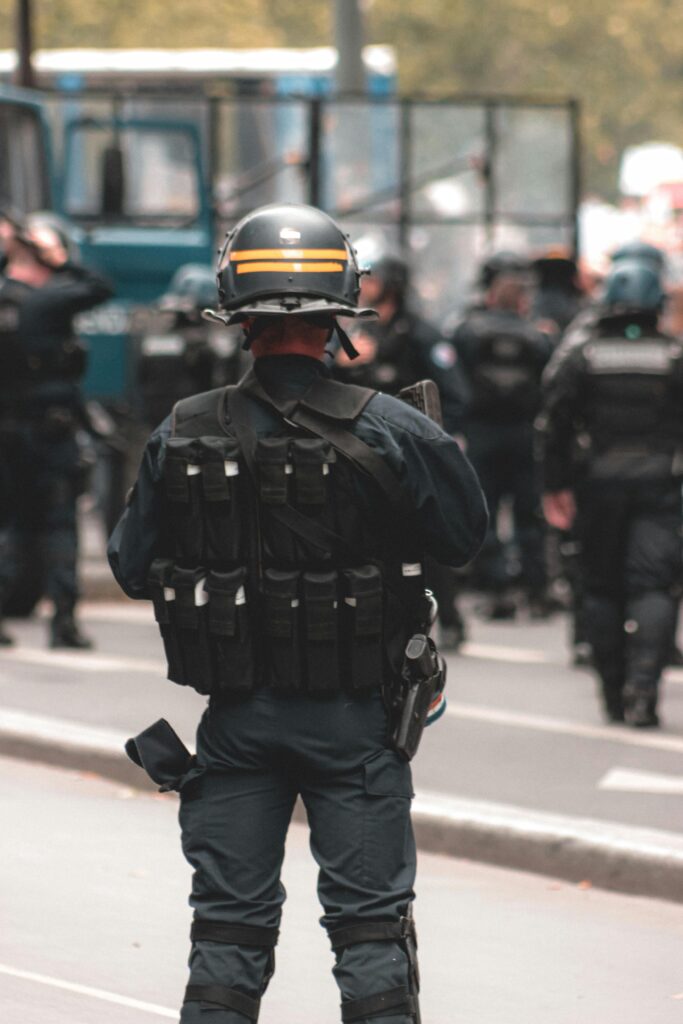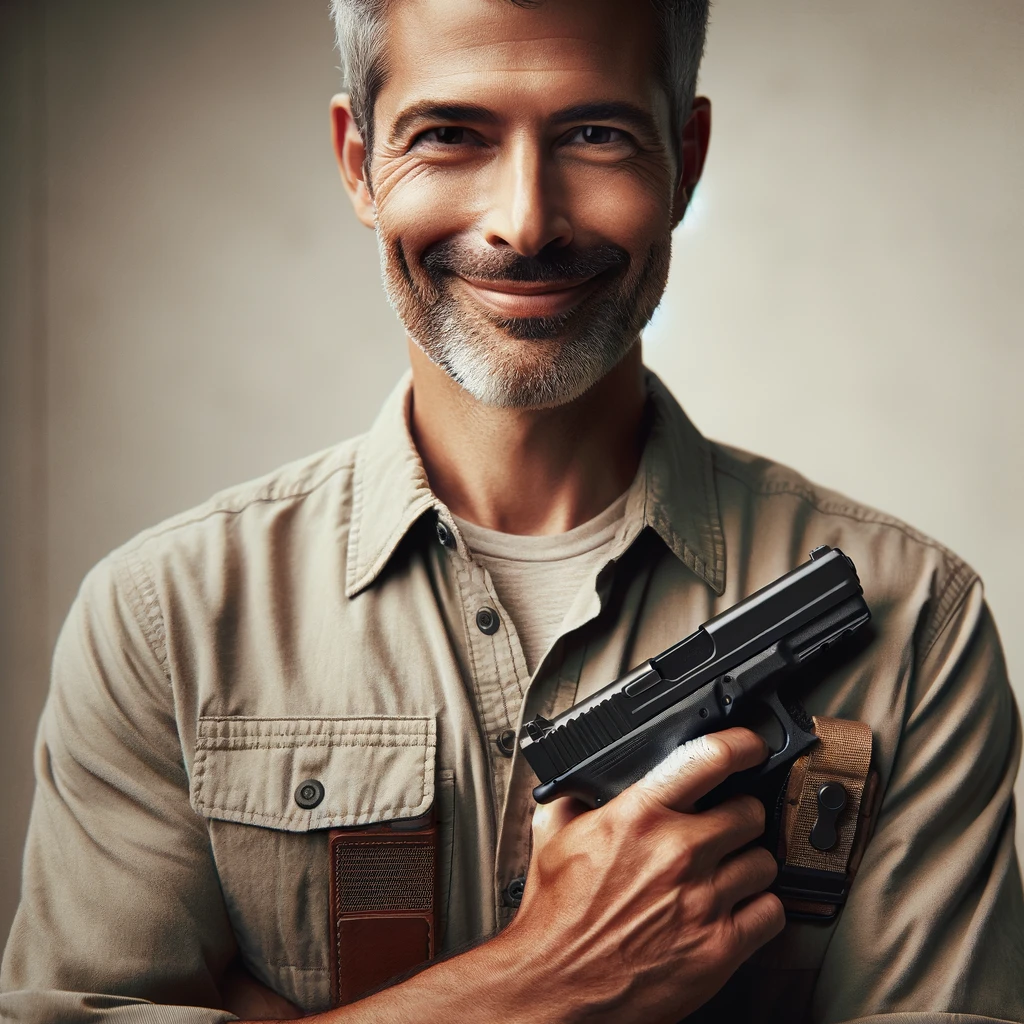
Competitive shooting is a diverse and dynamic sport, engaging people from all walks of life, from casual hobbyists to dedicated professionals.
If you want to get better with your guns, sharpen your marksmanship, or just enjoy the excitement of the sport, grasping the subtleties of competitive shooting can greatly enhance your experience. This detailed guide explores essential disciplines, gear, and tactics to help you succeed in competitive shooting.
You don’t need to spend mega money on custom guns either. There are classes for just about every gun and levels of competition. So don’t worry about looking like a doofus. It just doesn’t matter, you’ll meet some really cool people who will help with your technique and you will improve dramatically if you stick at it.
Understanding Competitive Shooting Disciplines
Competitive shooting comprises various disciplines, each with unique rules, required equipment, and skills. Let’s examine some of the most popular ones:
- Pistol Shooting: Events like Bullseye focus on precision shooting at stationary targets, while Action Pistol challenges speed and accuracy with moving and reactive targets. You can use everything from a bone stock revolver through to highly customized semi automatics from 22LR through to 50 caliber handguns.
- Rifle Shooting: This includes High Power Rifle, shooting at long-range targets from different positions with sniper rifles, and Smallbore Rifle, emphasizing precision with .22 caliber rifles.
- Shotgun Sports: Activities like Trap, Skeet, and Sporting Clays involve hitting moving clay targets at various angles and speeds.
- 3-Gun Competition: An increasingly popular discipline where participants use rifles, shotguns, and pistols across varied courses to hit different target types. You go against the clock and it’s intense, but this will really stretch your abilities and make you way better at handling your firearms.
Selecting the Right Gear
To start, just choose the catergories and classes that suit your gear. Don’t start spending silly money on handguns with compensators just yet. Find what you like, and then start to invest in better guns. You can easily start with a simple Glock 19, a Smith & Wesson 686, Mossberg 500 or any straight shooting 22 rifle.
Down the line, choosing appropriate gear is crucial for your performance in competitive shooting. Although specific requirements differ by discipline, here are some general tips:
- Firearms: Opt for models that meet competition rules and fit your body and shooting style well. Consider weight, balance, and ergonomics for rifles and shotguns; grip fit and trigger action for pistols. Confidence is a massive part of the shooting process, so look for a class that suits your favorite gun, rather than a gun to suit the class you’re looking at.
- Optics and Sights: Depending on the event, you might need iron sights, scopes, or red dot sights. Superior optics can enhance both accuracy and speed, and will teach you the intricacies of your sights.
- Ammunition: Use competition-grade ammo for consistent and reliable performance. Many competitors handload their ammunition to customize it for their firearm and discipline. You don’t need to worry about that for a good long while, though.
- Support Equipment: Items such as shooting mats, ear and eye protection, holsters, and magazine pouches are vital. Comfort and easy access to your equipment can impact both performance and enjoyment.
Training and Preparation
Success in competitive shooting largely depends on your preparation:
- Fundamental Skills: All shooters should master the basics. Work on a proper stance, grip, sight alignment, and trigger control. Regular practice is crucial.
- Physical Conditioning: While shooting isn’t as physically demanding as other sports, good health, strength, and stability are necessary for maintaining positions and enduring long matches. Physical fitness also helps control stress, and there’s really no downside.
- Mental Focus: Shooting is as much a mental challenge as a physical one. Techniques like visualization, relaxation, and concentration exercises can boost your mental strength.
- Dry-Firing: Practicing without live ammunition allows you to work on mechanics and muscle memory safely. You can also use modern high tech training systems to practice without hitting the range.
- Scenarios and Drills: Design specific drills to enhance your speed, accuracy, and handling under pressure. Replicate competition conditions to increase confidence and skill.
Strategies for Competition Day
Competition days can be stressful, particularly for beginners:
- Pre-Match Preparation: Arrive early to familiarize yourself with the competition area and schedule. Ensure all your gear is ready.
- Stay Relaxed but Focused: Manage nerves by breathing deeply and staying concentrated on the task.
- Post-Shot Analysis: After each shot or stage, quickly assess your performance to make adjustments. Focus on improving future shots instead of dwelling on past mistakes.
- Adapt to Conditions: Be ready to adjust to changes in weather, lighting, and schedules. Flexibility is key.
After the Match
Post-competition, reflect on your performance to identify strengths and areas for improvement. Discuss your performance with experienced shooters for further insights. Remember, every competition is an opportunity to learn and grow.
FAQs
How do I start in competitive shooting? Join a local club or range. They typically offer beginner courses and provide details on suitable competitions.
How crucial is ammunition choice? Very. Consistent ammunition results in more predictable and accurate shooting.
Common mistakes by new competitive shooters? They often overlook mental preparation, underestimate the value of dry-fire practice, and fail to fully understand the rules of their discipline.
Improving accuracy in pistol competitions? Concentrate on perfecting marksmanship fundamentals, practice regularly, and invest in quality pistols and sights. Also, consider adjusting your grip and stance. Don’t worry too much about speed at first. Get good, then get fast.
Safety during competitions? Always adhere to gun safety rules: treat all guns as loaded, never point a gun at anything you don’t intend to destroy, keep your finger off the trigger until ready to shoot, and ensure you know your target and what lies beyond it.
By exploring the varied aspects of competitive shooting, selecting appropriate gear, and adopting effective training methods, you can significantly boost your performance and enjoyment of the sport. Whether your aim is to enhance your skills, compete at higher levels, or simply appreciate the community and challenge of competitive shooting, this guide lays the groundwork for your success.
And by simply entering competitions, you’ll become much more confident in your gun handling. So get over the nerves and give it a go. You’ll be seriously glad you did.



I keep reading about the “shooting community” and how people will go out of their way to welcome in new competitors. I have gone to matches as an observer to help tape cardboard targets and re-set the fallen metal ones. I even helped a youngling load his magazines between stages. Listened much, spoke little. I did not find it the welcoming environment that everyone talks about. No one was eager for me to join. Just one more person in the rotation, or whatever they call it. I do understand that it is not 1984 and President Reagan is no longer in the White House. I know things change. Perhaps things are different in Alabama or Ohio, but where I live it just is not enjoyable. The days of the occasional shooter have been replaced with folks that shoot 52 weekends a year, 3 times during the week, and in between sit at a reloading bench. Sorry for the soap box.
You are totally allowed a go on the soapbox. Normally it’s just me… And yes your opinion and your experience is valid, I do hear this. I mean the easy answer is to just go to different places and find a place that actually IS welcoming, and forget those old school ‘you’re not from around here are ya stranger?’ ranges. That said, I don’t want to diminish your point with a trite response, because honestly you’re not the only person to say this.
So there is no easy answer to that, but I do understand your point. If that helps. Which it probably doesn’t…
Believe me, I wish I could find it enjoyable. Maybe I will before I get too old. I am glad that some other people can enjoy it. Best of luck always.